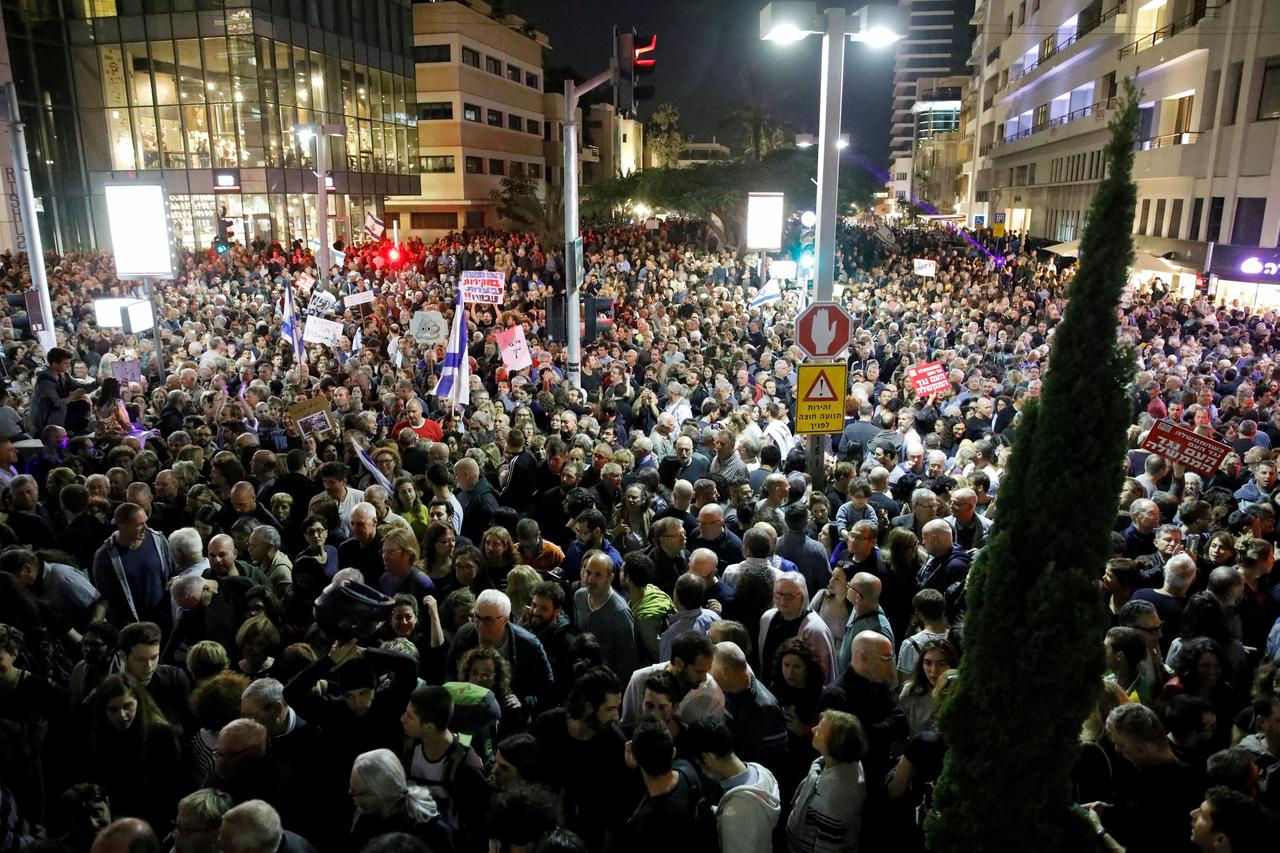The English proverb "third time's a charm" denotes probable luck in the third attempt at a task after failing twice.
In Hebrew the proverb says, "third time we buy each other ice cream."
As Israel heads to a record third general election within a year, no one's counting on charm or ice cream.
What most are hoping for is a permanent, solvent government that can address the business of fixing infrastructure and social problems delayed for more than a year as the country's key politicians drag their citizens through successive failed election campaigns characterized by bluffing, stalling, name calling and finger pointing.
Neither of the front-running Likud or Blue and White parties has succeeded in negotiating a coalition with the other and neither party has enough of a majority – 61 Knesset or parliament seats – to build a coalition alone. So it comes down to bartering that, so far, hasn't worked.
Which is why, as the deadline clock for forming a government struck midnight Wednesday, the latest interim parliament was dissolved and a third, March 2 general election was announced.

A supporter of the Israeli Likud party kisses an election campaign poster depicting Israeli Prime Minister Benjamin Netanyahu at the market in Jerusalem, Israel, September 13, 2019. /Reuters Photo
A supporter of the Israeli Likud party kisses an election campaign poster depicting Israeli Prime Minister Benjamin Netanyahu at the market in Jerusalem, Israel, September 13, 2019. /Reuters Photo
Election #3: How Israel got to a stalemate
Israel's collective, accusatory finger is pointing at Prime Minister Benjamin Netanyahu for round after round of elections.
Netanyahu, indicted in November on criminal charges of corruption and bribery, has largely negotiated terms for forming or joining a coalition around keeping himself in power either via existing laws or immunity and plea bargain appeals he is expected to file on his own behalf.
Netanyahu is the only sitting prime minister in Israel's history to be indicted on criminal charges.

Avichai Mandelblit, Israel's attorney general, announces that Prime Minister Benjamin Netanyahu will be indicted for bribery, fraud and breach of trust in Jerusalem, Israel, November 21, 2019. /VCG Photo
Avichai Mandelblit, Israel's attorney general, announces that Prime Minister Benjamin Netanyahu will be indicted for bribery, fraud and breach of trust in Jerusalem, Israel, November 21, 2019. /VCG Photo
Because Israeli law allows a sitting indicted prime minister to remain in office, Netanyahu negotiates from a position of attempting to keep himself in the prime minister seat regardless of consequences to Israel's voting public.
Israeli law doesn't have directives on whether or not a person indicted on criminal charges can run for prime minister, so despite Netanyahu's indictments, he is expected to run as his party's lead candidate – again – in the upcoming campaign round #3.

Israelis take part in a protest against corruption in Tel Aviv, Israel, December 2, 2017. /Reuters Photo
Israelis take part in a protest against corruption in Tel Aviv, Israel, December 2, 2017. /Reuters Photo
Successive elections, a missing-in-action government, no budget and social programs needing urgent attention – and funds – are wearing the Israeli public down. Fully aware of – and angry over – Netanyahu's role in keeping the nation's political machine stuck, polls show the prime minister's right wing block is taking a popularity hit.
Ricochets are also being felt within Netanyahu's Likud party where calls for a change of leadership are reverberating through the right wing party corridors that Netanyahu has commanded since 2005.
A vote to possibly replace Netanyahu with a new party leader will be held in late December.